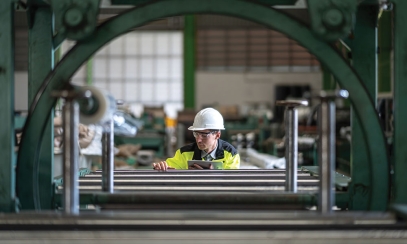
Themes of Catholic Social Teaching
Call to Family, Community, and Participation
Call to Family, Community, and Participation
To understand the Call to Family, Community, and Participation, it might be helpful to first reflect on the truth that we exist in relationship with others. None of us exists in isolation. This means that our political, economic, social, environmental, technological and spiritual structures flow from human relationships – relationships between individuals and groups, in relation to God, one’s neighbor, the self and creation.
To understand the Call to Family, Community, and Participation, it might be helpful to first reflect on the truth that we exist in relationship with others. None of us exists in isolation. This means that our political, economic, social, environmental, technological and spiritual structures flow from human relationships – relationships between individuals and groups, in relation to God, one’s neighbor, the self and creation.
We are not victims of impersonal forces acting apart from us; through our agency, we help create the very structures that shape our lives. Our decisions and relationships create the society in which we live, and the shape of the society we build affects our lives in turn. Therefore, how we organize society is of critical importance.
In our treatment of the Life and Dignity of the Human Person, we noted that we are made for a relationship with God and are oriented toward communion with one another. The Call to Family, Community, and Participation, then, carries forward the ideal of communion into the organization of society, which has implications for both the promotion of human dignity and the ability of persons to grow in community.
The basic unit of society
Made in the image and likeness of God – who is himself a communion of persons in love – we are called to family. The family is the fundamental unit of societal organization and, therefore, critical to all other levels of organization. The family is where we first learn to relate to one another, and where our ideas of what it means to participate in social life are shaped. Consequently, the health of society as a whole will reflect the state of the family in that society.
The same holds for the life of the Church. As goes the family, so goes the Church! The Church also conceives of itself as a family. The Catechism proclaims that the “Church is a home and family for everyone…” (1658) The family has a particular role in fostering Christian life. It’s in the family that we learn endurance, generosity, forgiveness and prayer. (1657) This is why the Catechism refers to the family as the “domestic church.”
In his exhortation Amoris Laetitia, Pope Francis called the family to be an agent of pastoral activity in word and deed. He said the family can proclaim the Gospel and witness solidarity with the poor, other families and those at the margins of social structures, “beginning in the territory in which the family lives, through the practice of the corporal and spiritual works of mercy.” (290) Families, therefore, must be formed and equipped to carry out these tasks as their contribution to the work of fostering authentic family, community, and participation of others in society.
Additional units of society
In addition to the family and the Church, there are innumerable other types of communities into which people gather: neighborhood, city, state, nation, social, volunteer, etc. Ultimately, the Church’s understanding of community expands to the entire world.
Not surprisingly, Catholic Social Teaching calls us to work for the common good within the different communities in which we find ourselves. The Second Vatican Council document, Gaudium et Spes (The Church in the Modern World), describes the common good as the “sum of those conditions of social life by which individuals, families, and groups can achieve their own fulfillment in a relatively thorough and ready way.” (26)
Participation in the organization of society
We are called to participate in the community. This call arises from an acknowledgement of both the interrelatedness of reality and the responsibility and accountability we have as persons made in the image of God and who share “in the divine governance of visible creation.” In Forming Consciences for Faithful Citizenship, the U.S. Bishops describe participation in the public life of the various communities in which we find ourselves as both a moral and ethical obligation.
However, the U.S. Bishops also explain in their 1986 letter, Economic Justice for All, that this obligation goes beyond our own participation: “Basic justice demands the establishment of minimum levels of participation in the life of the human community for all persons.” Because the exclusion of a person or group from full participation in the life of the community is the “ultimate injustice,” the U.S. Bishops say the Call to Participate includes the call to make sure others participate as well.
DID YOU KNOW …
The United States Conference of Catholic Bishops and Catholic Relief Services have teamed up to produce a series called CST 101, covering the seven main themes of Catholic Social Teaching. The series features a short video exploring each of the seven themes, and a downloadable discussion guide and lesson plan that can be used to learn more about each theme.
To view this content, visit the Catholic Relief Services website: crs.org/ways-to-help/pray/catholic-social-teaching-101.
Who Said That?
“The social message of the gospel must not be considered a theory, but above all else a basis and motivation for action.”
A. St. Paul VI
B. Pope Francis
C. St. John Paul II
D. Pope Leo XIV
Answer: C. St. John Paul II in Centesimus Annus (57)
Doug Culp is the chief operating officer for the Pontifical Mission Societies of the United States.



